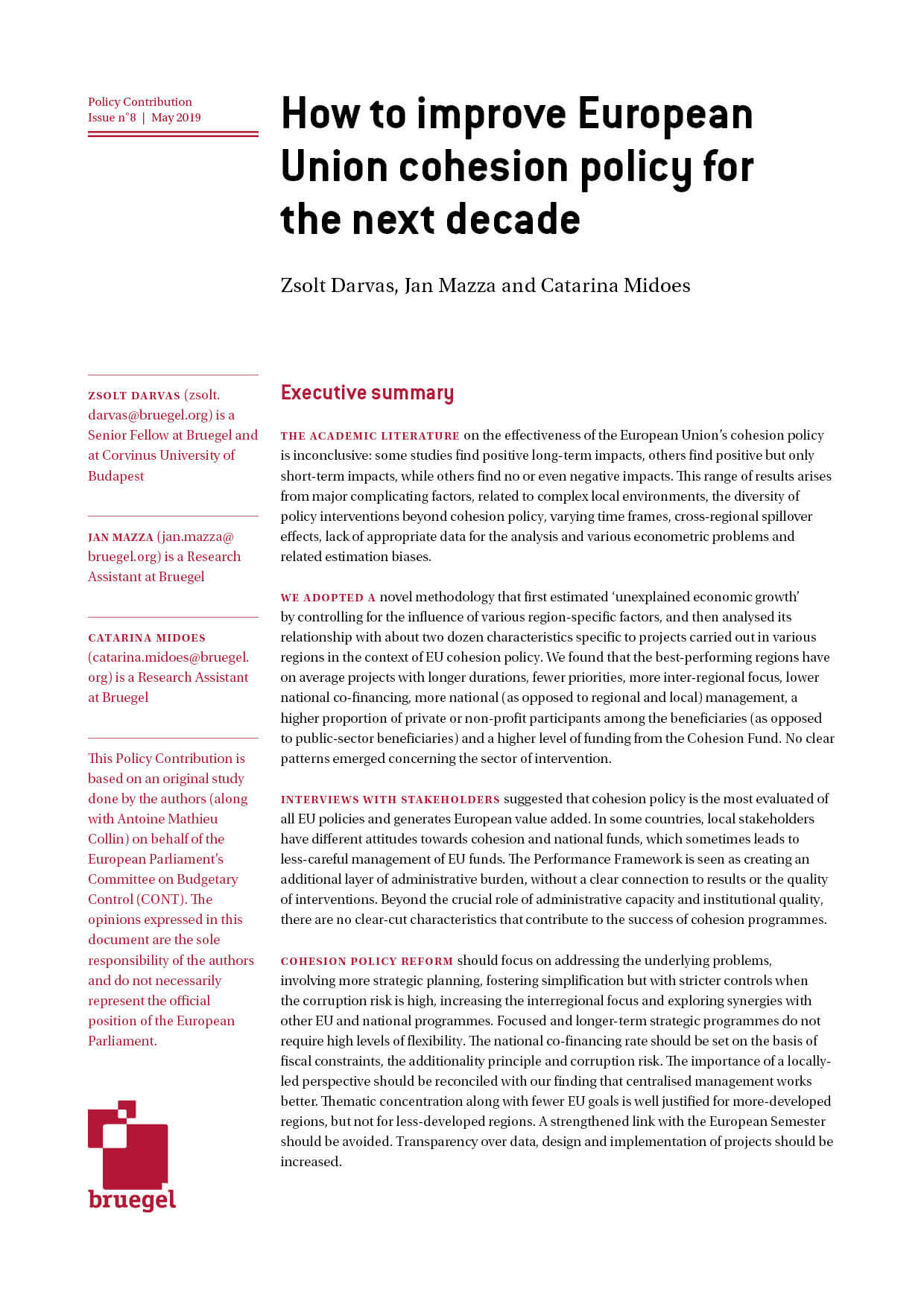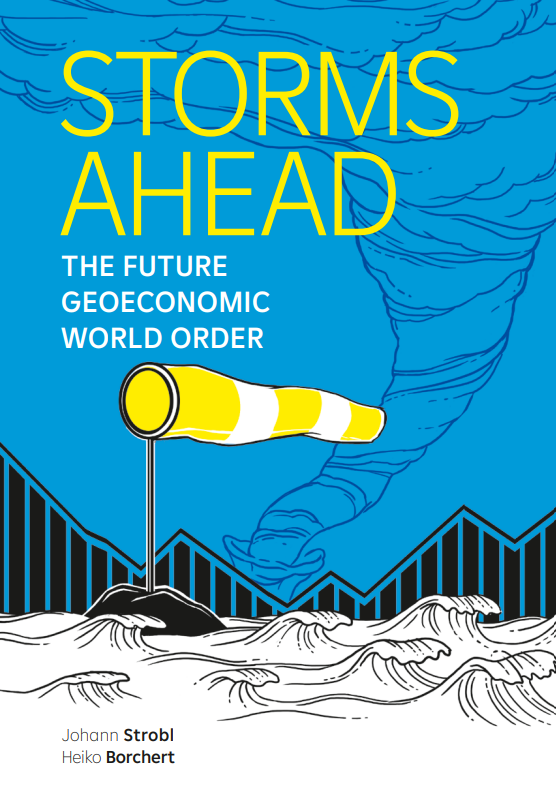Policy Contribution
How to improve European Union cohesion policy for the next decade
This policy contribution investigates the performance of the design, implementation and effectiveness of cohesion policy, the most evaluated EU tool for promoting economic convergence. By analysing the effects of cohesion policy on economic growth through reviewing literature, conducting empirical research by comparing regions, as well as considering attitudes and expectations collected through interviewing stakeholders, the authors provide reform recommendations.
The academic literature on the effectiveness of the European Union’s cohesion policy is inconclusive: some studies find positive long-term impacts, others find positive but only short-term impacts, while others find no or even negative impacts. This range of results arises from major complicating factors, related to complex local environments, the diversity of policy interventions beyond cohesion policy, varying time frames, cross-regional spillover effects, lack of appropriate data for the analysis and various econometric problems and related estimation biases.
We adopted a novel methodology that first estimated ‘unexplained economic growth’ by controlling for the influence of various region-specific factors, and then analysed its relationship with about two dozen characteristics specific to projects carried out in various regions in the context of EU cohesion policy. We found that the best-performing regions have on average projects with longer durations, fewer priorities, more inter-regional focus, lower national co-financing, more national (as opposed to regional and local) management, a higher proportion of private or non-profit participants among the beneficiaries (as opposed to public-sector beneficiaries) and a higher level of funding from the Cohesion Fund. No clear patterns emerged concerning the sector of intervention.
Interviews with stakeholders suggested that cohesion policy is the most evaluated of all EU policies and generates European value added. In some countries, local stakeholders have different attitudes towards cohesion and national funds, which sometimes leads to less-careful management of EU funds. The Performance Framework is seen as creating an additional layer of administrative burden, without a clear connection to results or the quality of interventions. Beyond the crucial role of administrative capacity and institutional quality, there are no clear-cut characteristics that contribute to the success of cohesion programmes.
Cohesion policy reform should focus on addressing the underlying problems, involving more strategic planning, fostering simplification but with stricter controls when the corruption risk is high, increasing the interregional focus and exploring synergies with other EU and national programmes. Focused and longer-term strategic programmes do not require high levels of flexibility. The national co-financing rate should be set on the basis of fiscal constraints, the additionality principle and corruption risk. The importance of a locally-led perspective should be reconciled with our finding that centralised management works better. Thematic concentration along with fewer EU goals is well justified for more-developed regions, but not for less-developed regions. A strengthened link with the European Semester should be avoided. Transparency over data, design and implementation of projects should be increased.












